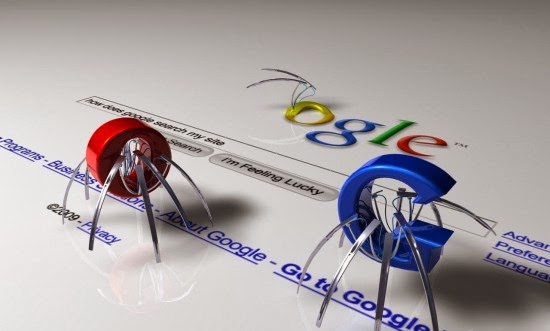A lot of people seem to think it takes weeks (or even months) to get indexed in Google, but that's just not true. Almost anyone can get his or her site crawled and indexed in two weeks or less - sometimes you can even be listed in the Google index in as little as a few hours!
There are several ways to get indexed quickly. All of them involve getting links to your site on other sites that have high PageRank, or sites that are updated often and get crawled frequently by search engine spiders.
You don't have to pay to do this. There are plenty of ways to get these types of links to your site without paying a penny. One of the easiest ways to get indexed quickly is to ping your site. You don't have to own a blog to ping your site at places like pingoat.com or pingomatic.com.
Just add your site's name and URL, and leave the RSS feed link blank. (It's not necessary.) Sometimes this technique alone can get you indexed in a day or two. Next, you should submit your link to various social bookmarking sites.
These sites get crawled several times a day, so they can be a very good way to get your own site crawled and indexed quickly. You should get an account at all of the major bookmarking sites. Don't miss StumbleUpon, Digg, Furl, del.ico.us, and Slashdot.
 Press releases can be very helpful in getting your site crawled and indexed quickly. Most of the more popular press release sites have good PageRank, get crawled often, and can even get your press release posted on a number of different sites that borrow news from the PR directories. Sometimes it can be worth submitting a press release simply for the ease and speed of being indexed.
Press releases can be very helpful in getting your site crawled and indexed quickly. Most of the more popular press release sites have good PageRank, get crawled often, and can even get your press release posted on a number of different sites that borrow news from the PR directories. Sometimes it can be worth submitting a press release simply for the ease and speed of being indexed.
Article marketing is another way to get indexed fast. Submitting an article or two can also help you get backlinks, better PageRank, and targeted traffic to your site. A lot of article directories have very good PageRank, so it definitely has benefits other than just quick indexing.
Blog commenting can be a very good way to get indexed quickly. You'll need to find blogs that don't have the "nofollow" tag, because blogs that have "nofollow" won't let search engines crawl the links anyway.
This is debated by SEO experts - some saying the "nofollow" tag doesn't even matter, since some search engine spiders ignore them anyway. Others claim you might get a small amount of traffic from the blogs themselves, but "nofollow" blogs will do nothing to help you get indexed faster.
You should also make sure you do all you can to maximize the ability of spiders to crawl your site. You should have links that are easy to find and follow, use text links instead of only image links, don't use Flash or image maps unless you also have text links for spiders to follow, and make sure you keep your site as clean as possible. Having too many links on your main page can confuse spiders, and your site may not be indexed properly.
Forums often get crawled on a regular (daily) rotation since the content is updated often. Popular forums have had posts on their site show up on Google just minutes after they're posted! It's very common for posts on very popular forums to show up in Google in less than 24 hours. Posting a small link in your signature on some of these forums can help you get your site indexed quickly.
Finally, you can exchange links with other webmasters in your niche. This a great way to build backlinks, and if their sites get crawled often, you'll be adding to the chance that your site will be crawled and indexed quickly, too. Link exchanges won't penalize your site, either - unless you amass too many too soon - so stick with organic growth (a few a day) and it shouldn't put up any red flags for the search engines.




















